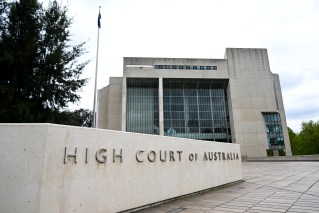UK tightens border rules after detecting two cases of mutated Omicron strain

The UK has detected two cases of the mutated Omicron strain and moved swiftly to impose restrictions as South Africa complained the world was punishing it for discovering the variant.
Prime Minister Boris Johnson announced new measures including compulsory testing of all arrivals into the UK and the return of masks after months of freedoms.
Germany has also reported two cases of Omicron.
It comes as several countries including Australia re-imposed travel bans and quarantine requirements targeting flights from southern African nations.
Non-Australian citizens now cannot enter Australia if they have been in nine countries where Omicron has been detected (South Africa, Namibia, Zimbabwe, Botswana, Lesotho, Eswatini, The Seychelles, Malawi and Mozambique).
Two weeks of supervised quarantine has been revived for Australian citizens who have been in those countries over the past 14 days, or who have already arrived.
NSW and Victoria are also tightening border rules only a month after scrapping quarantine requirements for vaccinated travellers.
Now any fully vaccinated traveller entering those two states from overseas will have to isolate for 72 hours.
Health Minister Greg Hunt said the travel changes were precautionary until scientists understood more about the seemingly faster spreading variant.
“If the medical evidence shows that further actions are required, we will not hesitate to take them and that may involve strengthening or expanding the restrictions,” he said.
“The world will learn a lot over the coming weeks.”
However South Africa’s foreign ministry has released a statement strongly criticising the mounting international border closures, saying the country was being treated unfairly.
The statement said the reaction to new variants elsewhere in the world had been completely different.
“Excellent science should be applauded and not punished,” it said.
The foreign ministry said the bans were “akin to punishing South Africa for its advanced genomic sequencing and the ability to detect new variants quicker”.
South Africa’s Medical Association has also indicated early research on Omicron appeared to show that symptoms in patients were not severe.
Meanwhile vaccine makers have already starting determining whether they need to rework their jabs to remain effective against Omicron.
BioNTech and Pfizer anticipate more data within two weeks and would expect to be able to ship a new vaccine tailored to the emerging variant in about 100 days.
“We understand the concern of experts and have immediately initiated investigations on variant B.1.1.529,” BioNTech said in a statement.
“We expect more data from the laboratory tests in two weeks at the latest. These data will provide more information about whether B.1.1.529 could be an escape variant that may require an adjustment of our vaccine if the variant spreads globally.”
Moderna said it was working to advance a booster candidate tailored to the new variant and had also been testing a higher dose of its existing booster and studying other booster candidates designed to protect against multiple variants.
Global authorities reacted with alarm on Friday to the new variant, with the USA, Canada, the EU and the United Kingdom among those tightening border controls as scientists race to find out if the mutation is vaccine-resistant.
The UK followed up with requirements for all travellers to take a PCR test within two days of their arrival and self-isolate until they receive a negative result.
All contacts of suspected Omicron cases will have to self-isolate for 10 days, regardless of their vaccination status.
Masks will also become compulsory on UK public transport and in shops but not hospitality.
England’s Chief Medical Officer Chris Whitty explained the rapid response was largely because of the strong likelihood Omicron had enough mutations to bypass vaccines.
–with AAP








